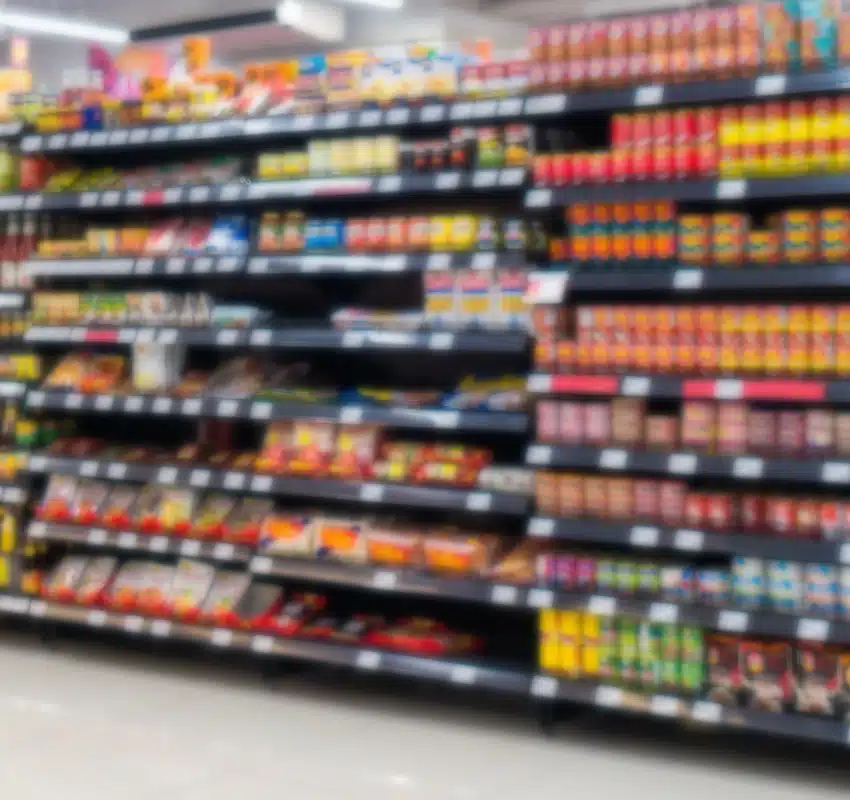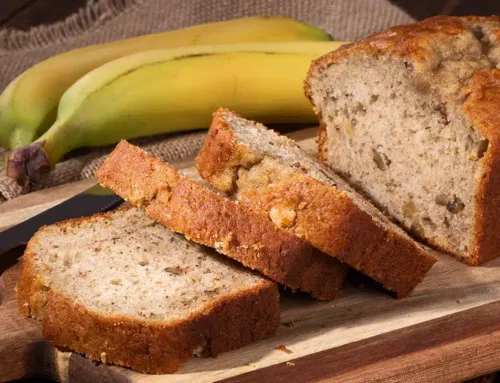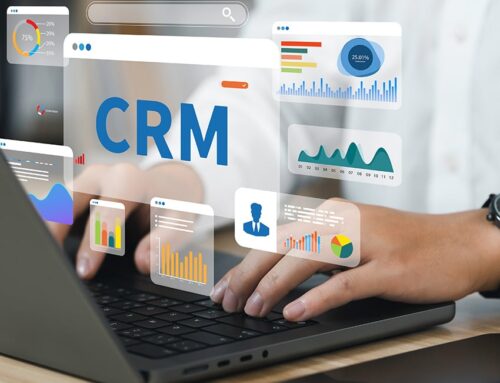Best Food & Beverage Digital Marketing Strategies
Want to elevate your food and beverage brand online? Effective digital marketing is essential for attracting customers, increasing brand recognition, and driving sales in this highly competitive industry. This article outlines the most impactful digital marketing strategies for food and beverage businesses, including social media marketing, SEO, email campaigns, and content creation, which are designed to connect with your target audience and grow your brand.
Key Takeaways
- Understanding customer behavior and leveraging targeted advertising are essential for maximizing ROI and building a strong brand presence in the competitive food and beverage industry.
- Digital marketing strategies, particularly through social media and email, are essential for engaging consumers and driving sales growth for food and beverage brands.
- Implementing loyalty programs and sustainability practices can significantly enhance customer retention and build brand loyalty in a market that increasingly values eco-friendly choices.
Understanding Food and Beverage Marketing
Establishing a strong presence in the competitive food and beverage market requires a well-defined brand vision and a unique selling proposition that differentiates a brand from its competitors. To achieve this, businesses must deeply understand consumer behavior, emerging trends, and market dynamics through comprehensive research. Identifying what drives customer choices, whether it is convenience, health-conscious options, or sustainability, allows brands to craft strategies that effectively capture consumer interest.
Successful marketing strategies in the food and beverage sector not only distinguish brands but also promote sales growth while fostering customer loyalty. Recognizing your target audience is essential when designing impactful marketing strategies that resonate well with them. Such targeted marketing can greatly increase customer visits, amplify the visibility of the brand on store shelves, and elevate online sales figures.
The Importance of Digital Marketing in the Food and Beverage Industry
The growth of online shopping and meal delivery services has revolutionized the way brands in the food and beverage industry engage directly with consumers. Digital marketing strategies have expanded their reach, enabling these brands to connect with a larger pool of potential customers. Utilizing platforms such as social media, mobile applications, and official websites offers innovative approaches for customer engagement within the realm of food marketing.
Food and beverage companies are increasingly using digital initiatives to establish real-time connections with consumers through personalized, data-driven strategies. By leveraging analytics tools, these businesses can craft targeted campaigns that align with evolving consumer behaviors and preferences. As marketing continues to shift toward greater customization, brands are prioritizing more precise and engaging communication efforts
In order to sustain sales momentum, it is imperative for businesses in the food and beverage domain to swiftly adapt not only to evolving consumer tastes but also to technological shifts occurring within digital marketing landscapes. Embracing these critical strategies plays a vital role in seizing consumer attention effectively, which is key for achieving commercial success across both the broader food industry as well as specialized segments focused on beverages.
Leveraging Social Media Platforms
Currently, more than 70% of consumers turn to social media for recommendations on food, underscoring its essential role in the development of marketing strategies for social platforms. Instagram, Facebook, and X (formerly known as Twitter) are indispensable channels for promoting food and beverage products. These platforms enable brands within the food and beverage industry to cultivate communities and nurture consumer loyalty by providing engaging content.
On platforms such as Instagram, where visual appeal is key, campaigns that showcase eye-catching images of foods tend to achieve better results. Encouraging customers to post their own experiences with a brand’s offerings through user-generated content proves an effective tactic in bolstering engagement on social media. Brief video clips shared via TikTok or Instagram Stories can captivate audiences effectively within the context of the food and beverage domain.
Utilizing hashtags has proven beneficial in enhancing online visibility for posts related to various food and drink brands. Promotions available only for a limited period generate enthusiasm among users on these networks while encouraging swift purchases. For those targeting younger demographics specifically with succinct yet captivating videos about edibles or drinks, TikTok stands out as an increasingly relevant tool in modern-day digital promotion efforts within the realm of food advertising.
Optimizing Website with SEO
Search Engine Optimization (SEO) is essential in driving organic traffic and securing top rankings on search engines for food and beverage businesses. A high-converting website should feature effortless navigation, sharp images of products, client testimonials, comprehensive descriptions, and a straightforward checkout process to enhance user experience.
For restaurants aiming to reach their target audience through relevant search terms, a well-structured keyword strategy is essential. Creating content tailored to the intended market can significantly boost brand visibility and strengthen consumer connections. Dedicated pages for individual products, curated collections, bundled offers, and educational blogs serve as effective tools for attracting potential customers.
Engaging Customers Through Email Marketing
Email marketing is a powerful tool for direct customer engagement, offering an impressive ROI of 42:1. Personalized email campaigns enhance customer retention by delivering relevant content tailored to individual preferences.
Food and beverage brands use email marketing to announce product launches, promotions, and special events. Newsletters featuring exclusive deals, helpful tips, and recipe ideas keep customers engaged. Well-crafted subject lines increase open rates by capturing recipients’ attention, while a clear call to action (CTA) encourages readers to take the next step.
Segmenting email lists based on customer preferences ensures targeted messaging, making emails more relevant and impactful. With high engagement rates and a strong return on investment, email marketing remains an essential strategy for driving sales in the food and beverage industry.
Influencer Collaborations to Boost Brand Reach
Influencer marketing has become a key strategy for food and beverage brands, especially with the rise of e-commerce and social media. Platforms like Instagram and TikTok offer brands an opportunity to reach wider audiences through authentic content.
Rather than relying solely on traditional influencers, many brands now partner with real customers and food enthusiasts who genuinely enjoy their products. This authenticity factor resonates with audiences, as overly scripted promotions can feel disconnected. Selecting influencers who align with a brand’s values and target demographic is crucial for campaign success.
Brands must also navigate evolving guidelines, as the Federal Trade Commission (FTC) has tightened regulations on influencer disclosures to ensure transparency in sponsored content.
Content Marketing Strategies for Food and Beverage Brands
Effective content marketing helps food and beverage brands build stronger connections with their audience. A mix of blog posts, video content, and recipe ideas can engage consumers and enhance brand loyalty.
Blogs that discuss industry trends, expert insights, and food-related tips not only attract readers but also establish the brand as an authority in its niche. Brands can also integrate their products into recipe blogs, making them more appealing to potential customers.
Video marketing is particularly powerful, offering a compelling way to share brand stories and behind-the-scenes insights. Compared to traditional media, videos hold attention longer and create deeper connections with audiences.
Customized email messages improve consumer interactions by recommending options tailored to previous shopping behavior. Tailoring emails according to recipient location allows brands to highlight local specials and events effectively. Targeted email campaigns are a powerful way to highlight seasonal products and remind customers about limited-time offerings.
Utilizing Customer Reviews and Managing Online Reputation
Customer feedback plays a vital role in shaping a food and beverage brand’s reputation. Positive reviews increase trust and credibility, influencing potential customers’ purchasing decisions. Brands should actively encourage satisfied customers to leave reviews and address negative feedback professionally and promptly.
Maintaining an excellent digital reputation requires consistent engagement and transparency. Ethical branding and sustainability efforts also impact consumer choices. In 2023, over 70% of shoppers reported they would stop supporting brands with misleading eco-friendly claims, highlighting the importance of authenticity.
Implementing Paid Marketing Campaigns
Paid advertising is one of the most effective ways for food and beverage brands to reach their target audience, increase visibility, and drive sales. Digital advertising enables brands to showcase their products in front of highly relevant consumers through precise targeting options.
Social media platforms like Facebook, Instagram, and TikTok offer powerful tools to create visually engaging ad campaigns that resonate with users. These platforms provide audience segmentation based on demographics, interests, and behaviors, ensuring that brands reach potential customers who are genuinely interested in their products. The ability to use compelling imagery and videos further enhances the effectiveness of social media advertising, making it easier for brands to capture attention and generate engagement.
For food and beverage brands looking to increase sales in e-commerce, advertising on platforms like Instacart and Amazon Fresh allows them to connect directly with grocery shoppers who are actively searching for food products. This increases the likelihood of conversions, as consumers are already in the buying mindset.
Local advertising also plays a vital role in driving foot traffic to restaurants and food retailers. Platforms like Yelp and food delivery apps help brands target nearby customers, increasing awareness and attracting potential diners. Investing in a well-structured digital advertising strategy that combines social media ads, e-commerce promotions, and local marketing efforts can significantly enhance a brand’s reach and revenue.
Creating Loyalty Programs to Enhance Customer Retention
Customer retention is essential for long-term business success, and loyalty programs are a proven strategy to keep customers engaged. Research shows that retaining an existing customer is five times more cost-effective than acquiring a new one. Food and beverage brands can encourage repeat business by offering exclusive rewards, discounts, and personalized incentives that align with customers’ preferences. A well-designed loyalty program fosters deeper customer relationships and strengthens brand loyalty.
Loyalty programs that incorporate gamification elements, such as points-based rewards, tiered membership benefits, and milestone incentives, make the experience more interactive and enjoyable for customers. These elements encourage continued participation as customers feel motivated to unlock new benefits.
Additionally, integrating a seamless omnichannel experience ensures that customers can enjoy loyalty rewards across digital platforms and physical stores without disruptions. This consistency enhances convenience and encourages more frequent interactions with the brand. By implementing personalized and engaging loyalty programs, food and beverage brands can build a strong customer base, boost repeat sales, and increase customer lifetime value.
Embracing Sustainability and Eco-Friendly Practices
Customers are showing a greater preference for sustainable goods as environmental consciousness plays a more significant role in their buying choices. A substantial number of consumers now view sustainability as an essential component of brand loyalty, and this shift is reflected by the growing popularity of vegetarian and vegan products following the plant-based diet movement, which affects what retailers stock.
Eco-centric content is gaining momentum on social media platforms, heightening user awareness about ecological matters. It has become increasingly important for companies to be transparent about where and how they source and manufacture their products since numerous customers wish to understand the provenance of their food items.
To stand out in today’s oversaturated market, brands must embed sustainability into their core values and clearly communicate these efforts across all touchpoints. Organizing events that spotlight eco-friendly practices and sustainable offerings not only reinforces brand authenticity but also strengthens connections with environmentally conscious consumers who actively support purpose-driven businesses.
Hosting Virtual Events and Online Tastings
The digital landscape has opened new opportunities for food and beverage brands to engage with their audience through virtual events. Hosting online tastings, live cooking demonstrations, and interactive brand experiences allows companies to connect with consumers in a more personal and engaging way. Unlike traditional events, virtual gatherings eliminate geographical limitations, enabling brands to reach a wider audience while keeping costs low. These digital experiences offer brands a direct line of communication with customers, fostering a stronger sense of connection and loyalty.
One of the key benefits of virtual events is the ability to track audience engagement and gather valuable data. Brands can analyze participant interactions, feedback, and purchasing behavior to refine their marketing strategies. Online tastings and live Q&A sessions create an immersive experience, allowing customers to learn more about products while feeling personally involved with the brand. By leveraging digital platforms to host engaging virtual events, food and beverage brands can enhance brand awareness, boost sales, and build meaningful relationships with their audience.
Summary
Digital marketing plays a crucial role in the success of food and beverage brands, offering various strategies to increase visibility, engagement, and sales. Effective online reputation management through customer reviews and ethical branding helps build trust and credibility. Paid advertising campaigns on social media, e-commerce platforms, and local directories allow brands to reach their target audience with precision. Loyalty programs strengthen customer retention by providing personalized incentives and interactive experiences. Sustainability has become a key differentiator, with eco-friendly practices attracting conscious consumers and fostering long-term loyalty. Additionally, virtual events and online tastings offer innovative ways to engage with customers, providing immersive brand experiences that drive awareness and sales.
By implementing these digital marketing strategies, food and beverage brands can position themselves for long-term success, increase customer engagement, and establish a strong presence in an increasingly competitive market. Investing in the right digital marketing techniques ensures that brands not only gain visibility but also create meaningful connections with their audience, ultimately leading to sustained growth and profitability.











